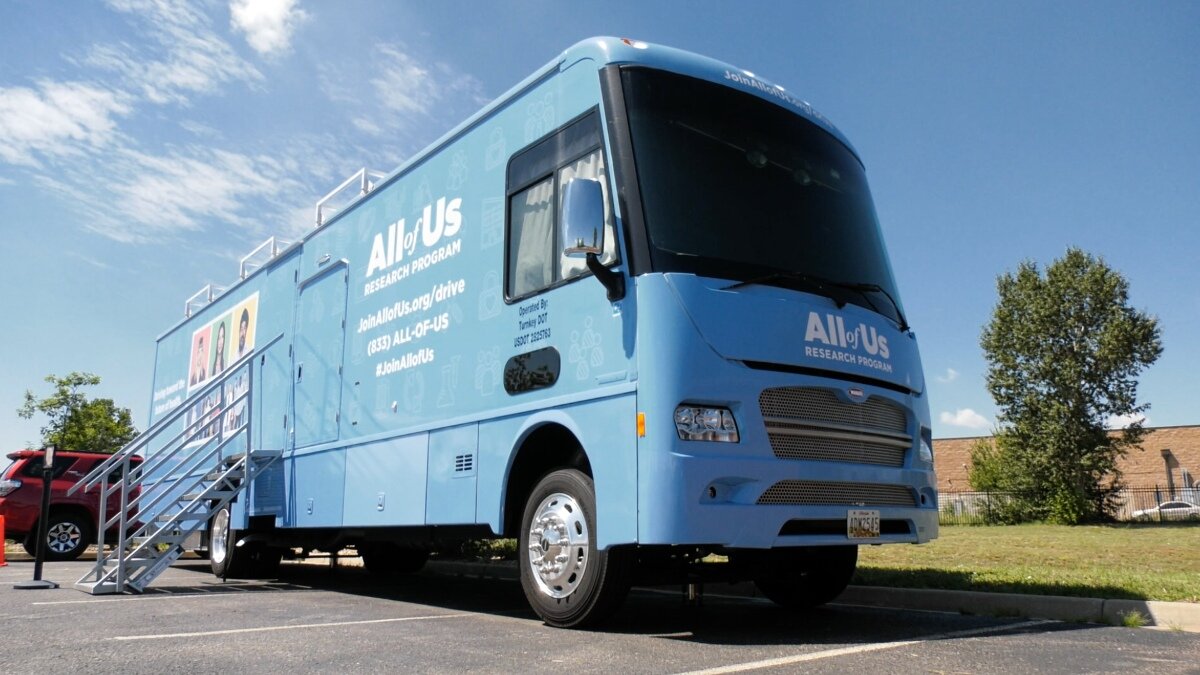"All of Us" program aims to diversify medical research, one DNA sample at a time

DENVER — For Karen Buenrostro, being fully informed about her own health care is very important.
She explained to Rocky Mountain PBS that in her family, hereditary conditions like diabetes and high cholesterol are common.
“I know that that's something coming down the road for me and … I really want to be able to help not only myself but my nieces, my nephews,” Buenrostro explained.
Buenrostro is helping by participating in a research program called All of Us.
Organized by the National Institutes of Health, the All of Us Research Program started in 2018 with a goal of collecting data from one million people to “help build one of the most diverse health databases of its kind and advance precision medicine.”
To date, more than 320,000 people spread across 40 states have participated in the research program, which aims to reach more people of color, a group that historically has been underrepresented in medical research. According to the Harvard Business Review, clinical trials mostly enroll white, male patients. While people of color make up nearly 40 percent of the American population, “their rates of inclusion in trials range from a high of 16 percent to as low as 2 percent.”
According to All of Us, 50 percent of program participants are from racial and ethnic minority groups.
“We’re trying to create this big database so that in the future generations, they have a better approach [to] medicine and they don’t have the same medicine approach that we have today,” said Ruben Campino, a floor manager for All of Us.
Campino provided an example: if a large group of people go to the doctor because they have headaches, the doctor may prescribe the same medicine to each patient. “That’s a trial and error procedure,” Campino said. “We want to change that; we want to have it … to where they [doctors] look at your background, they look at your age, they look at your health style. And all of these things come into factor to try to get you a more precise approach to the medication.”

The mission for the researchers at All of Us is to take the data they collect, and then compile it so that doctors can treat symptoms in a more tailored, personalized way for each patient depending on the patients biology, lifestyle and environment.
“If I decide to have children in the future, I know this is something that will benefit them as well,” Buenrostro said.
The program travels through the country in a large blue bus that doubles as a mobile clinic. The clinic will be open outside Montebello Community Health Center Friday, Aug. 19 from 10 a.m. to 4 p.m. before moving to the Lowry Family Health Center from Aug. 29 to Sept. 2. More information about participation is available here.
“I really hope that people will see this — especially [people] from the Hispanic/Latinx community — to be involved,” Buenrostro said. “Because we’re actually being represented in something and not just thought of as an afterthought. So we’re really being asked to have a seat at the table which I think is really important.”
Julio Sandoval is a multimedia journalist at Rocky Mountain PBS. You can reach him at juliosandoval@rmpbs.org.
Kyle Cooke is the digital media manager at Rocky Mountain PBS. You can reach him at kylecooke@rmpbs.org.